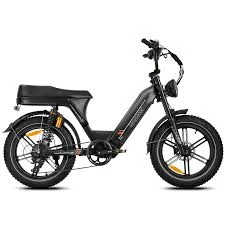
- Afrikaans
- Albanian
- Amharic
- Arabic
- Armenian
- Azerbaijani
- Basque
- Belarusian
- Bengali
- Bosnian
- Bulgarian
- Catalan
- Cebuano
- Corsican
- Croatian
- Czech
- Danish
- Dutch
- English
- Esperanto
- Estonian
- Finnish
- French
- Frisian
- Galician
- Georgian
- German
- Greek
- Gujarati
- Haitian Creole
- hausa
- hawaiian
- Hebrew
- Hindi
- Miao
- Hungarian
- Icelandic
- igbo
- Indonesian
- irish
- Italian
- Japanese
- Javanese
- Kannada
- kazakh
- Khmer
- Rwandese
- Korean
- Kurdish
- Kyrgyz
- Lao
- Latin
- Latvian
- Lithuanian
- Luxembourgish
- Macedonian
- Malgashi
- Malay
- Malayalam
- Maltese
- Maori
- Marathi
- Mongolian
- Myanmar
- Nepali
- Norwegian
- Norwegian
- Occitan
- Pashto
- Persian
- Polish
- Portuguese
- Punjabi
- Romanian
- Russian
- Samoan
- Scottish Gaelic
- Serbian
- Sesotho
- Shona
- Sindhi
- Sinhala
- Slovak
- Slovenian
- Somali
- Spanish
- Sundanese
- Swahili
- Swedish
- Tagalog
- Tajik
- Tamil
- Tatar
- Telugu
- Thai
- Turkish
- Turkmen
- Ukrainian
- Urdu
- Uighur
- Uzbek
- Vietnamese
- Welsh
- Bantu
- Yiddish
- Yoruba
- Zulu
Dec . 05, 2024 15:04 Back to list
self charging electric bike
The Rise of Self-Charging Electric Bikes A Green Revolution on Two Wheels
In recent years, electric bikes (e-bikes) have surged in popularity, offering an eco-friendly alternative to traditional vehicles. Among the various innovations enhancing this sustainable mode of transport, self-charging electric bikes have emerged as a game-changer. These bikes not only provide a greener solution but also address some of the common concerns associated with electric bikes, such as battery life and charging logistics.
Understanding Self-Charging Technology
At the heart of self-charging electric bikes is a sophisticated technology that allows the bike to generate energy as it moves. This can be achieved through several methods, including regenerative braking systems or integrated solar panels. Regenerative braking captures some of the energy normally lost during braking and converts it into electrical energy, which is then stored in the bike's battery. On the other hand, solar panels convert sunlight into electrical energy, allowing for continuous charging while the bike is parked or during sunny rides.
This innovative technology significantly enhances the convenience of e-bikes. Riders no longer need to constantly worry about finding charging stations or the battery dying mid-ride. Instead, they can enjoy longer rides without the anxiety of running out of power, making self-charging e-bikes ideal for daily commutes or leisurely weekend excursions.
Environmental Impact
The introduction of self-charging electric bikes contributes positively to the environment. Traditional gasoline-powered vehicles emit harmful pollutants, contributing to air quality deterioration and climate change. In contrast, e-bikes are an emission-free mode of transport, and when equipped with self-charging technology, they further reduce reliance on grid electricity, which is often generated through non-renewable resources.
By promoting the use of self-charging e-bikes, cities can reduce traffic congestion and lower carbon footprints. Urban areas clogged with vehicles could benefit from an increase in bike usage, leading to less pollution, quieter streets, and healthier communities. Moreover, the ability to self-charge encourages more people to adopt e-bikes, leading to a broader shift towards sustainable transportation options.
self charging electric bike

Cost Savings
Self-charging electric bikes can also lead to significant cost savings for riders. Though the initial investment in an e-bike may be higher than that of a traditional bicycle, the long-term financial benefits are considerable. Riders save on fuel costs, parking fees, and, with self-charging, potentially lower electricity bills associated with charging the bike. This financial incentive can make self-charging e-bikes appealing to a wider range of consumers.
Additionally, maintenance costs tend to be lower for e-bikes compared to traditional vehicles. Without the need for gasoline and complex engine systems, riders can enjoy a more straightforward and less expensive upkeep experience. With fewer components that demand costly repairs, self-charging e-bikes represent a wise investment for the eco-conscious consumer.
Challenges Ahead
Despite the clear benefits, there are challenges that self-charging electric bikes must overcome to gain widespread adoption. Battery technology is continuously evolving, yet issues such as energy density and weight remain significant hurdles. Riders require batteries that are both lightweight and capable of holding sufficient charge for extended distances, particularly in diverse environments.
Moreover, the infrastructure for biking, including dedicated lanes and parking facilities, must also keep pace with the rising popularity of e-bikes. Cities that fail to adapt could stifle the growth of this innovative transportation solution, ultimately limiting its environmental benefits.
Conclusion
Self-charging electric bikes represent a remarkable fusion of technology and sustainability. With advancements in energy generation and efficiency, the future looks bright for these eco-friendly two-wheelers. As more people embrace sustainable transport options in a world increasingly aware of the environmental impact of our choices, self-charging e-bikes could play a pivotal role in shaping the future of urban mobility. By removing barriers such as battery anxiety and promoting greener alternatives, they can lead the charge toward a cleaner, more sustainable future for all.
-
The Ultimate Kids' Four-Wheeler Experience
NewsJul.09,2025
-
The Ultimate Guide to Mountain Bikes: Gear Up for Your Ride
NewsJul.09,2025
-
The New Age of Cycling: Electric Bikes for Every Rider
NewsJul.09,2025
-
The Best Kids Bicycles: Ride in Style and Safety
NewsJul.09,2025
-
The Best 3-Wheel Scooters for Kids: Fun, Safety, and Adventure
NewsJul.09,2025
-
Revolutionize Your Ride: Affordable Electric Bikes
NewsJul.09,2025
-
Finding the Perfect Mountain Bike for Every Rider
NewsJul.09,2025



